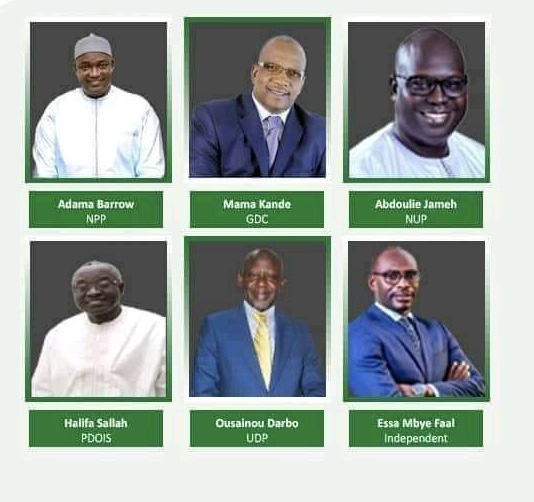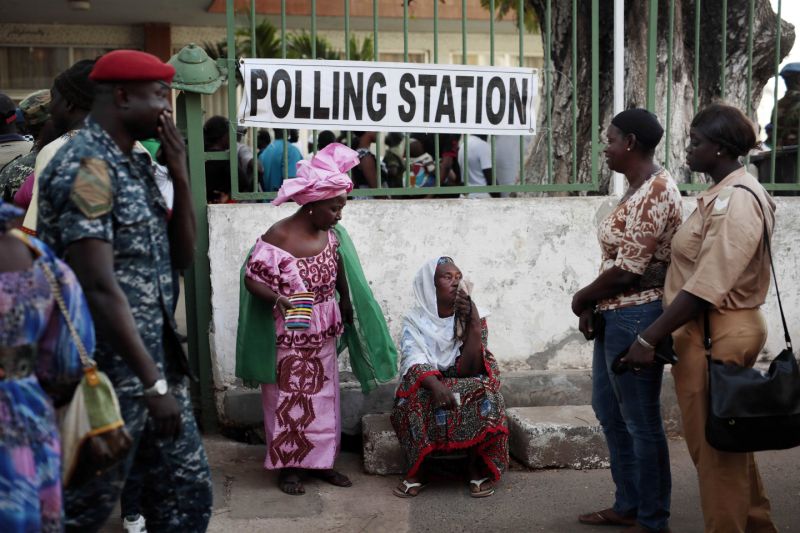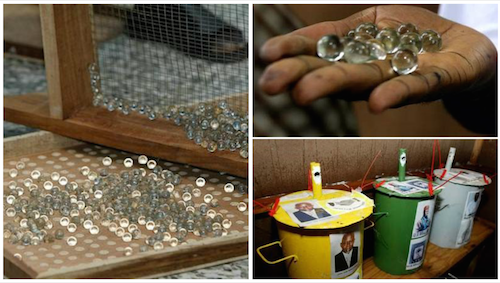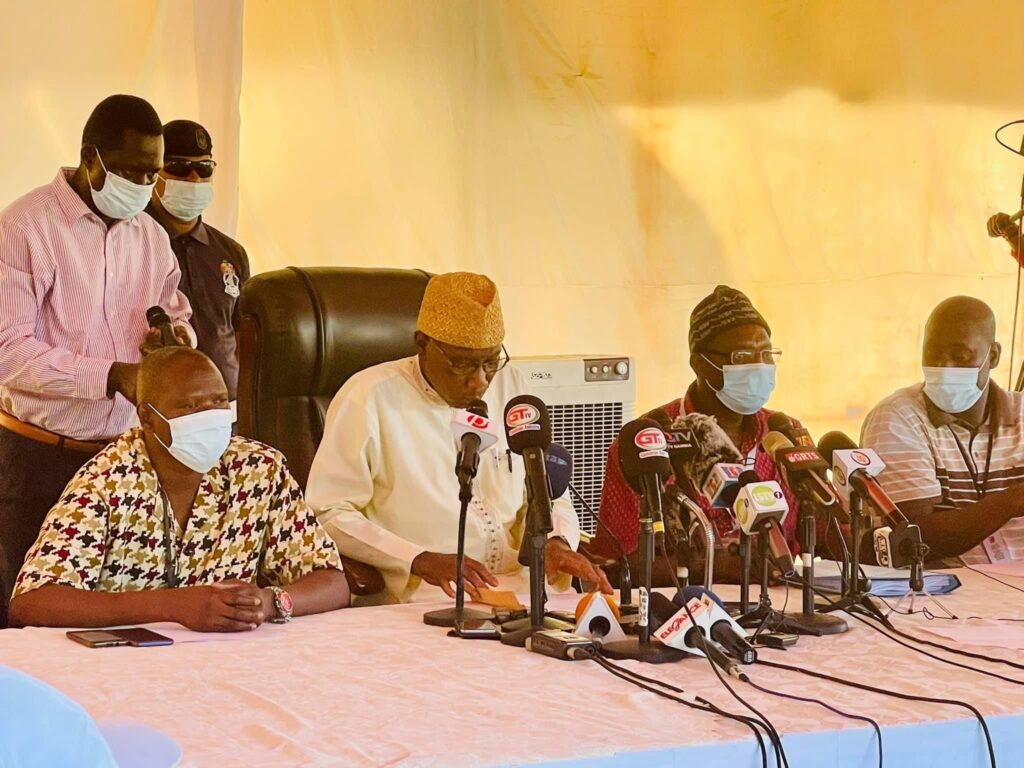
Barely a few hours away, the entire nation is understandably agog over the Saturday, December 4, 2021, presidential election. It is electioneering and politicking again.
We are back at the same crossroads as in 2016, except this election is more precarious and ominous than the former. As expected, many discourses and conversations are about the presidential election.
The print and social media are not left out as headlines about the upcoming elections continue to grace the pages of newspapers, make the front burner of media outlets and illume chat rooms on social media.
From Banjul to Niumi, Foni to Basse, the streets are overwhelmingly “cluttered” with various political party posters and leaflets, persuading the electorates to vote for a particular candidate or party. In addition, political parties and candidates have been holding rallies from region to region to sway voters.
Never in the history of our nascent democracy has the political arena been this competitive, tense and dire.
With predictions from the pundits and commentators that the Gambia might break-up on December 4; with the election verbatim of political party leaders and aspirants as being a “do or die affair”; with the ever-increasing threats from “glorified political thugs” branding themselves as Baye Faal’s, ‘Commandos and Field Marshall, that the country would break-up if their favored candidates do not win the upcoming elections; with the ongoing mass cross-carpeting of politicians from one political party to another in the quest for position and power, it is no surprise that we find ourselves in this current state of apprehension and fraught over the elections.
As election campaigns inadvertently overheat the polity, political violence is increasingly becoming the order of the day in a seemingly pre-election day Gambian fashion.
Some campaign vehicles belonging to other political parties were stoned by irate youths in the Upper River Region a few weeks back. In the Western Region, stones and missiles were thrown into the campaign bus of the NPP, and some of its members were injured.

Online political bullying has equally permeated discourse on political issues, as “die hard” supporters of both political parties and presidential candidates are increasingly becoming repugnant and intolerant to one another.
This pre-election violence is coming against the backdrop of the inter-party peace accord, assented by presidential candidates and others committing them against violence in the upcoming elections.
As we approach the Saturday presidential election, the certainty of violence after the 2016 elections is higher than in 2016. From all indications, if President Adama Barrow wins, some parts of the country, notably some of his government supporters, could erupt into violence.
If Abubacarr Darboe of the main opposition wins, some of his supporters could erupt into political vandalism. Indeed, we do not need rocket science to foresee this probable prediction.
However, this should not be the case. There is also a belief that there are states and movements out there, African and non-African alike, which could not mean well for the Gambian people, and who may wish for our beloved country to dissolve into a theater of bloodshed, gore, and instability.
If there are such interests out there, they will succeed if we continue this politics of violence and mayhem, this do-or-die politics, and making enemies of ourselves and friends of our enemies.
Similarly, our clime’s ever-present religious and ethnic sentiment is increasingly being exploited by some ethnic and religious jingoists for political gains, fuelling the pre-election violence currently being witnessed.
Hence, leaders of political parties and candidates should publicly and categorically condemn, denounce and disassociate themselves from such supporters who use violence as a means of expressing themselves or showing solidarity for a political party or candidate.
All of our politicians must comport themselves, be warned, and be penalized if and when they make unguarded statements, which incite their supporters to commit violence or inflict mayhem.
Politicians must be cautioned to act with decorum, respect, and fair play, instead of peddling in unnecessary mudslinging and character assassination.
Political aspirants must be urged to conduct civil and peaceful campaigns devoid of threats and a commitment to preach peaceful elections to their supporters.

Another salient issue I am finding difficult to wrap my brain around is the involvement of religious leaders in politics. In this election especially, it is a fact that religion has been intertwined with political activities.
We have seen this before where some political office holders misuse religion as a tool to get to power, while religious leaders are mishandling it to get personal gain from those who hold public office.
While religion has contributed to nation-building, the positive impact of faith on the Gambia’s democracy has remained negligible.
The manipulation of religion by some influential individuals who hide under the guise of religion to pursue selfish interests remains one of the adverse effects of religion in our polity.
Religious leaders are openly celebrating and singing the praises of some political bigwigs and furthering their agenda, all in the name of religion. The pulpit, in most cases, has been transformed into a podium for electioneering.
Undoubtedly, a significant amount of religious leaders are endemically involved in partisan politics.
Fatoumatta: Ideally, religious leaders are meant to be apolitical.
They should focus and engage more in peace-building instead of actively involved in politics, making public utterances that many devout followers, unfortunately, believe to be divinely inspired.
The roles of religious leaders should be in nation-building. They should not stand or clamor for any political aspirant or party.

Religious leaders and their institutions should stand for values, morals and set standards necessary for a stable, peaceful, and prosperous nation.
Their congregations are certainly of diverse political leanings. It is not prudent to divide or cajole them because of personal political opinion. The Muslim Clerics and Christian Clergy must altogether remove themselves from the political arena, preach for peace and be ready to calm the atmosphere in the aftermath of the elections, should there be a violent fallout.
Pastors, Sheriffs, Imams, Reverend Fathers, Sultans, Emirs, and other traditional Seyfolu and religious leaders should all be engaged in building a culture of peace, national unity, and integration.
These religious and traditional leaders undoubtedly play essential roles in building social cohesion in the Gambia.
Therefore, all efforts must be made to bring together such leaders on a neutral and apolitical platform to speak in one voice, preaching violence-free electioneering and politicking and exploring collaborative approaches to peace in times of crisis.
Based on a shared commitment to shared values and their moral authority, religious leaders and traditional rulers can serve as the conscience of this great nation of ours, working together to strengthen and build consensus around those shared values.
As we approach Election Day, the choice the electorate needs to make without violence or mayhem is simply between “continuity and change” via the ballot box.
However, in making that choice, we as a people should say “NO” to election violence and anything that does not stand for the peaceful unity that the Gambia so desperately needs.
Whether it is a vote for change or continuity, the Gambia needs peace and dialogue to move forward. If we do not want this country to go into pieces, we must go into the December 2021 elections in peace.
By Alagi Yorro Jallow











Recent Comments